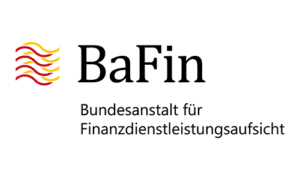BaFin
Bundesanstalt für Finanzdienstleistungsaufsicht (BaFin)
The Federal Financial Supervisory Authority, commonly known as BaFin (Bundesanstalt für Finanzdienstleistungsaufsicht), is Germany’s central regulatory body for financial markets. Established in 2002, BaFin is responsible for overseeing the stability, integrity, and transparency of financial markets in Germany. It plays a vital role in supervising banks, insurance companies, and financial service providers to ensure they adhere to German and European financial regulations.
History and Purpose of BaFin
BaFin was created as a merger of three supervisory bodies:
- Federal Banking Supervisory Office
- Federal Supervisory Office for Securities Trading
- Federal Insurance Supervisory Office
The key goal behind BaFin’s formation was to create a unified supervisory body for financial institutions in Germany. This integration allowed for more efficient and streamlined supervision, making BaFin one of the most robust financial regulators in Europe.
BaFin’s Role in Financial Supervision
BaFin’s responsibilities include:
Banking Supervision
BaFin supervises around 1,700 banks and financial institutions in Germany, ensuring that they maintain financial stability, comply with capital requirements, and follow sound risk management practices.
Insurance Supervision
Insurance companies operating in Germany are also under BaFin’s jurisdiction. BaFin makes sure these firms comply with solvency regulations and safeguard the interests of policyholders.
Securities Supervision
BaFin oversees financial markets, including securities and derivatives trading. It ensures fair competition, transparency, and investor protection in stock markets and other financial venues.
Anti-Money Laundering (AML)
BaFin actively combats money laundering and the financing of terrorism by imposing strict regulatory requirements on financial institutions. They monitor suspicious transactions and enforce compliance with AML laws.
Consumer Protection
A significant aspect of BaFin’s role is protecting consumers. BaFin ensures that financial products and services are safe and transparent, preventing unethical practices and misleading information from financial service providers.
BaFin’s Structure and Governance
BaFin operates as an independent federal institution under the legal and functional supervision of the Federal Ministry of Finance. Its budget is funded by the institutions it supervises, making it financially independent from the state budget. BaFin is headed by a President and operates in collaboration with the Deutsche Bundesbank, Germany’s central bank, in supervising banks and other financial entities.
How BaFin Regulates Crypto Assets
With the growing popularity of cryptocurrencies, BaFin has taken an active stance in regulating crypto-related activities. Germany was one of the first countries to introduce clear regulations regarding cryptocurrencies under the German Banking Act (KWG). BaFin requires crypto businesses, including exchanges and wallet providers, to obtain licenses and comply with strict anti-money laundering regulations. This regulatory clarity has made Germany an attractive hub for crypto businesses.
Challenges and Controversies
Despite its vital role, BaFin has faced criticism and controversies. One of the most notable cases involved the Wirecard scandal, where the company collapsed after it was revealed that €1.9 billion were missing from its balance sheet. BaFin was criticized for failing to act swiftly despite several warnings, which sparked discussions about the need for reforms in its supervisory practices.
In response, BaFin has taken steps to improve its regulatory framework, increase transparency, and enhance its oversight capabilities to prevent similar incidents in the future.
BaFin’s Role in Europe’s Financial Landscape
BaFin plays a crucial role within the European financial regulatory ecosystem. It works in collaboration with other European supervisory authorities, including the European Banking Authority (EBA), the European Securities and Markets Authority (ESMA), and the European Insurance and Occupational Pensions Authority (EIOPA), to ensure a unified and stable financial market across the EU. BaFin’s stringent regulatory standards and active participation in cross-border supervision make it a pillar of financial security in Europe.
How BaFin Protects Consumers
Consumer protection is at the heart of BaFin’s mandate. The authority ensures that financial products marketed to the public are transparent and safe. BaFin also offers channels for consumers to report complaints or issues regarding financial services. By maintaining strict supervision over advertising, contract terms, and the sale of financial products, BaFin works to shield consumers from deceptive practices.
Future of BaFin and Financial Supervision
The financial landscape is evolving rapidly, with emerging technologies like blockchain, fintech innovations, and environmental, social, and governance (ESG) considerations coming into focus. BaFin has embraced these changes by modernizing its regulatory approach, particularly in areas like digital currencies, fintech, and sustainable finance. Moving forward, BaFin is expected to continue refining its oversight mechanisms to meet the demands of an increasingly complex and interconnected global financial system.
BaFin’s role as Germany’s Federal Financial Supervisory Authority is pivotal to the stability of the country’s financial markets. Through its robust regulatory framework, BaFin protects consumers, enforces financial regulations, and fosters trust in the financial system. As global financial markets evolve, BaFin will continue to adapt its supervisory strategies, ensuring that Germany remains a leader in financial security and transparency.









